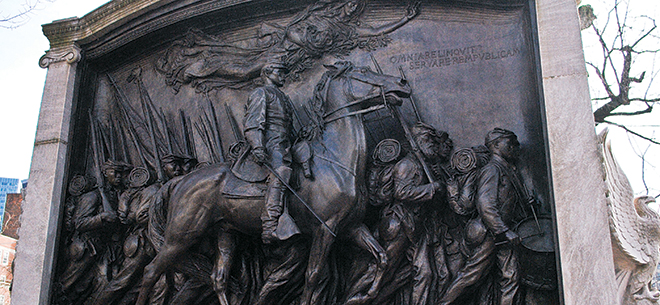
February is Black History Month, and it’s the perfect time to explore the stories of those of African descent who have contributed to the Hub. When “history” and “Boston” are spoken in the same sentence, most folks think of The Freedom Trail, a 2.5-mile stretch of historic sites in Downtown Boston, the North End and Charlestown that are connected by a red-brick line. The organization that runs the Freedom Trail offers several specialty tours besides the standard walk through its 16 storied locales, including February’s African-American Patriots excursion. The usual public tour is on hold due to the pandemic, yet private individual or group tours can be booked Monday–Friday from 1–4 p.m. On the trek, visitors learn about oft-overlooked figures from the Colonial and early Federalist period such as Crispus Attucks, who was one of the victims of the infamous Boston Massacre in 1770; Phillis Wheatley, who, in 1773, became the first published African-American poet; Peter Salem, a formerly enslaved man who fought the British at the first skirmish of the American Revolution, the Battle of Lexington and Concord, and also at the Battle of Bunker Hill, both in 1775; and Prince Hall, the founder of the first Black Masonic lodge in the U.S. For an even deeper dive, check out the Black Heritage Trail. Although guided tours are done for the season, a self-guided tour can be taken by picking up a map at the Museum of African American History—a great place to learn about Black history in and of itself—on Beacon Hill and hitting the streets to see such famed tributes as the 54th Regiment Memorial (pictured), which honors the first Black soldiers of the Civil War, as well as lesser-known sites like the African Meeting House, the oldest Black church building in America; the Philips School, which became one of the first integrated schools in the city in 1855; the Charles Street Meeting House, formerly an African Methodist Episcopal church; and the Lewis and Harriet Hayden House, once a very active stop on the Underground Railroad. A virtual tour is also available online, as is an audio tour on the National Park Service app. Other sites associated with Black history are scattered throughout the city, including Harriet Tubman Park in the South End, named for the Underground Railroad hero who visited Boston many times to meet with its network of prominent abolitionists, and Free at Last, a memorial sculpture dedicated to Dr. Martin Luther King, Jr. at Marsh Plaza on the campus of his alma mater, Boston University.
For the latest on COVID-19-related public health mandates for the City of Boston, visit here.


